NMN: The Savior Approaching Psoriasis Stubbornly from Within the Body!?
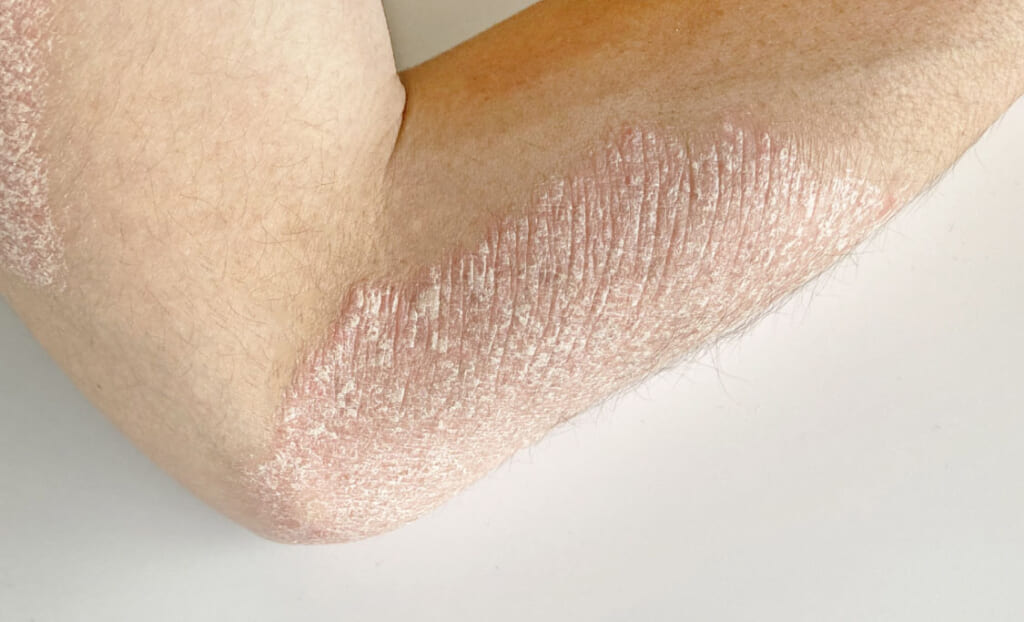 【What is Psoriasis?】
【What is Psoriasis?】
Psoriasis is a chronic skin condition where the skin undergoes inflammation. The exact cause of psoriasis is not clear, but it has been found to be associated with abnormalities in immune function due to genetics. Additionally, lifestyle habits and stress are believed to trigger the onset or worsen symptoms.
There are several types of psoriasis, each with different symptoms. The most common is plaque psoriasis, characterized by red, raised patches of skin that shed repeatedly. It can also affect nails, causing them to become white, brittle, and itchy.
Treatment options include topical medications, phototherapy, oral medications, injections, etc., but they are all palliative measures. Due to its high recurrence rate, continued treatment on a case-by-case basis is crucial. Psoriasis is not infectious, so it cannot be transmitted from person to person.
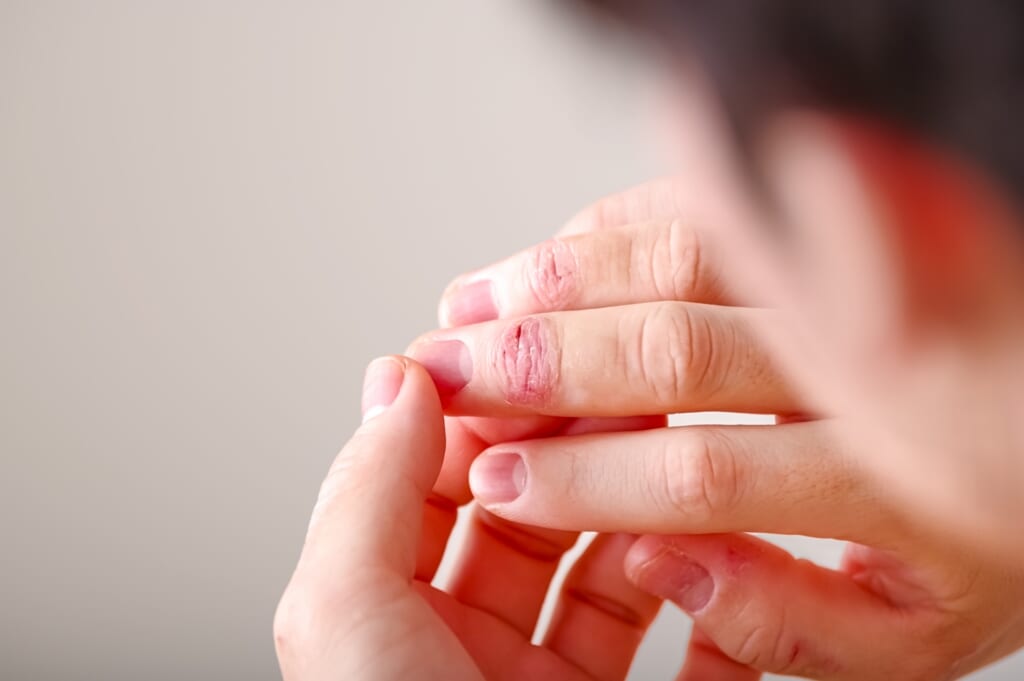 【Expectations for NMN in Reducing Inflammation】
【Expectations for NMN in Reducing Inflammation】
Nicotinamide Mononucleotide (NMN) is a precursor to Nicotinamide Adenine Dinucleotide (NAD+), which is converted to NAD+ in the body upon ingestion. NAD+ has been reported to have beneficial effects in various disease treatments, as it is involved in protein function and energy metabolism. One of its beneficial effects is the suppression of inflammation through its antioxidative and anti-inflammatory actions.
In this study, we investigated whether NMN, which increases NAD+ levels in the body, affects the prevention and recovery of psoriasis, a chronic inflammatory skin disease.
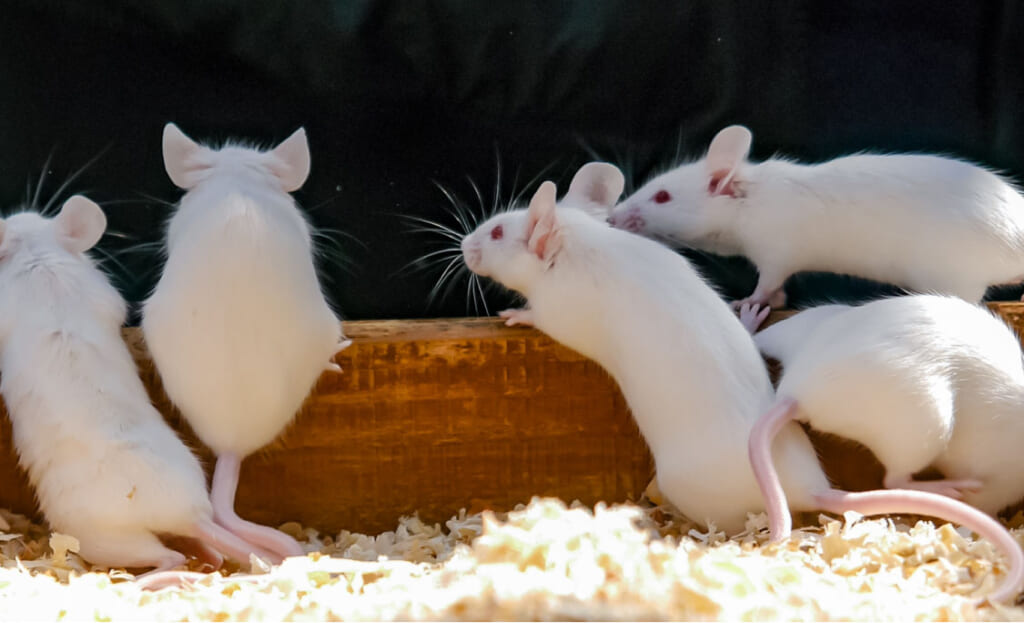 【Experimental Procedure】
【Experimental Procedure】
This study aimed to explore the potential role of NMN in the treatment of psoriasis.
In the experiment, mice with shaved body hair were prepared, divided into 3 groups:
① Mice without treatment
② Mice treated with Imiquimod (IMQ), a psoriasis-inducing agent applied to the skin for 5 days to induce psoriasis-like symptoms (IMQ mice)
③ Mice treated with 500 mg/kg/day of NMN orally for the same duration after applying Imiquimod (IMQ + NMN mice)
The condition of each group’s skin was observed.
※1: Imiquimod is a synthetic small molecule compound of the imidazoquinoline class that exhibits efficacy against viral infections. When applied topically, it may cause side effects such as erythema, edema, and epidermal detachment.
In this study, Imiquimod was applied to the mice’s skin to induce artificially induced conditions resembling skin irritation.
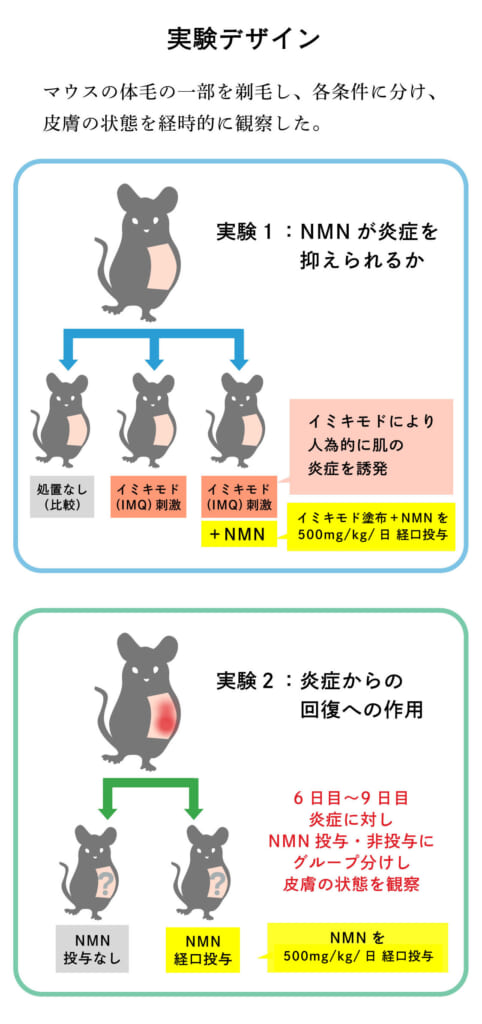
【Results Obtained from the Experiment】
■Evaluation of Anti-inflammatory Effects
Mice in the IMQ groups (IMQ mice, IMQ + NMN mice), which were treated with Imiquimod to induce psoriasis-like symptoms, showed excessive epidermal proliferation, splenomegaly, and inflammatory reactions. However, compared to 5 days after Imiquimod application, mice supplemented with NMN (IMQ + NMN mice) showed reduced inflammation.
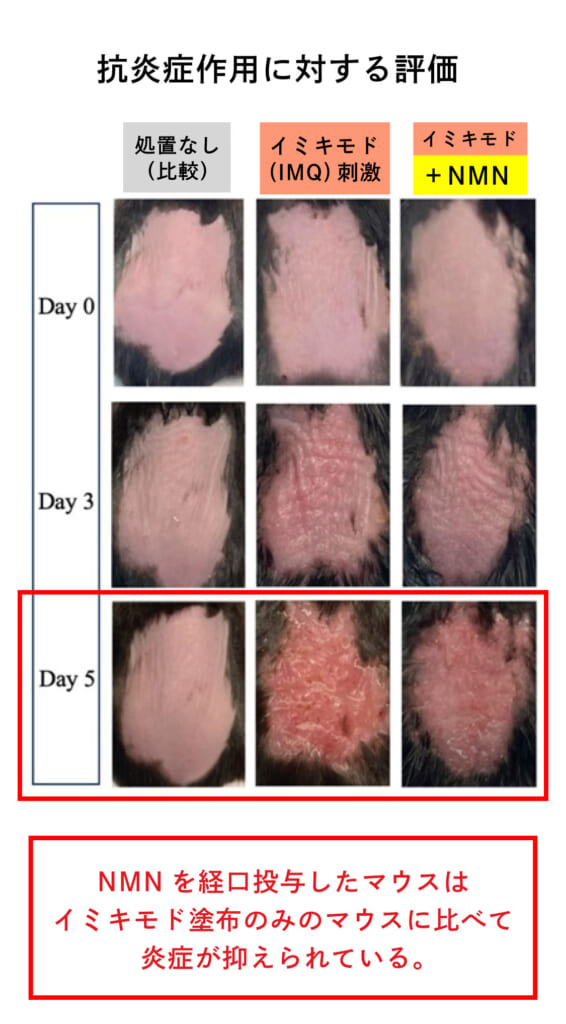
It is known that the spleen enlarges (splenomegaly) due to infection or acute/chronic inflammation. Therefore, in this experiment, the size of the spleen was also compared as one of the evaluations of inflammation.
As a result, the spleens of mice in the IMQ groups, where Imiquimod was applied, were enlarged. However, in mice supplemented with NMN (IMQ + NMN mice), the size and weight of the enlarged spleen were improved after the experiment ended.
※2: Database of gene expression information provided and maintained by NCBI (National Center for Biotechnology Information)
■Evaluation of Recovery from Inflammation
Protein SIRT1, a NAD+-dependent deacetylase, has been found to play a significant role in mitigating oxidative stress and inflammatory responses similar to NAD+. According to the GEO database※2, the expression levels of SIRT1 were significantly decreased in the lesions of psoriasis patients, promoting inflammatory responses. Indeed, mice in the IMQ groups also showed decreased expression levels of SIRT1.
However, mice supplemented with NMN (IMQ + NMN mice) not only inhibited the decrease in SIRT1 but also showed a faster recovery from inflammation.
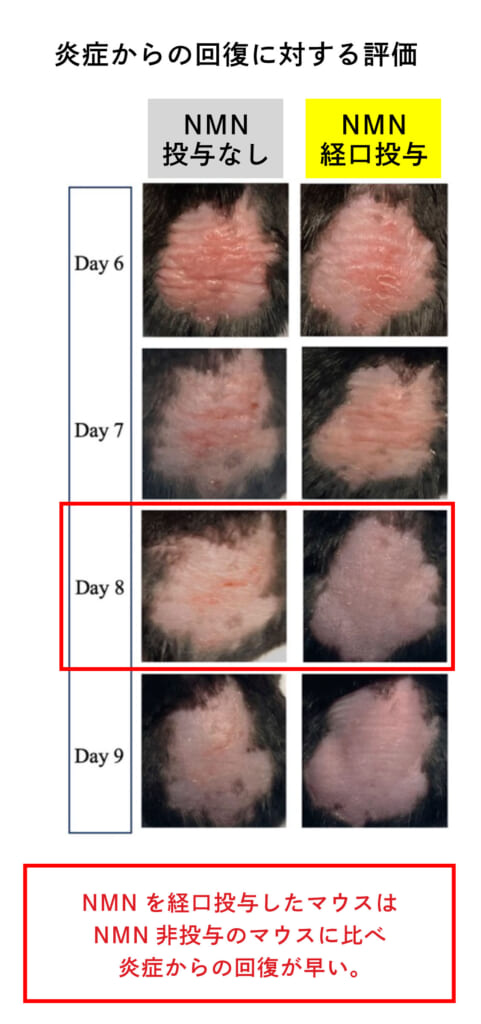
Furthermore, SIRT1 also improves mitochondrial function through the activation of protein PGC-1α, essential for mitochondrial biogenesis. In this experiment, mice supplemented with NMN (IMQ + NMN mice) showed increased copies of mtDNA (mitochondrial DNA) and improved mitochondrial function.
Mitochondrial dysfunction is well known to cause chronic inflammation and lead to the development of various diseases. Thus, NMN, which activates SIRT1 and improves mitochondrial function, is considered to contribute to the control and recovery of psoriasis, one of the chronic inflammatory conditions.
※Graphs and photos have been adapted from the original paper.
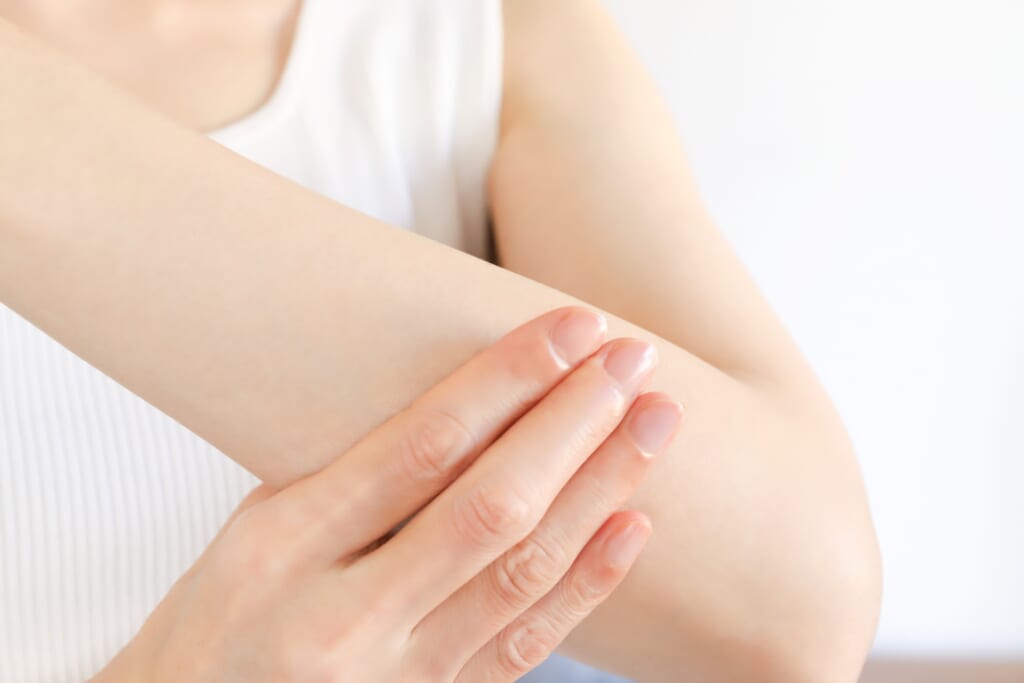 【NMN May Support Psoriasis Treatment from Within the Body】
【NMN May Support Psoriasis Treatment from Within the Body】
The above experimental results suggest that NMN alleviates psoriasis symptoms and may be a useful medication for treatment.
Treatment options for psoriasis in medical facilities include “topical therapy (ointments),” “phototherapy (UV therapy),” “oral therapy (oral medication),” and “injection therapy.” On the other hand, self-care in daily life is also considered effective in preventing and controlling psoriasis symptoms.
It is known that NAD+ obtained through NMN intake exhibits significant anti-inflammatory effects in the body. Research on psoriasis treatment through NMN and NAD+ supplementation is still ongoing. Incorporating NMN into daily life as part of self-care may be beneficial.
【Reference】
Reference paper: [The Role of Nicotinamide Mononucleotide Supplementation in Psoriasis Treatment]
Journal and Volume/Issue: Antioxidants (Basel). 2024 Feb 1;13(2):186.
Paper URL: here (PubMed)
https://pubmed.ncbi.nlm.nih.gov/38397784/
